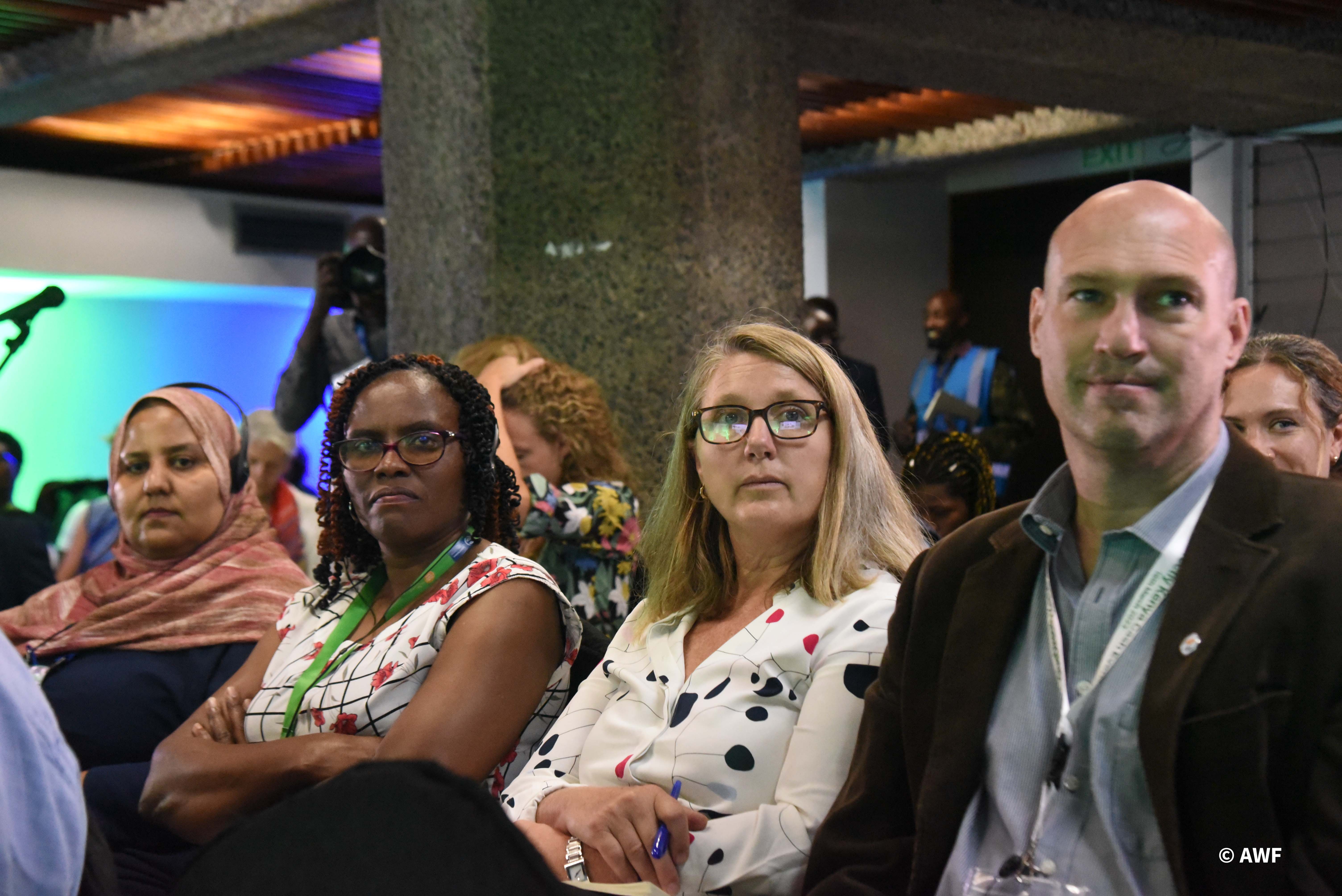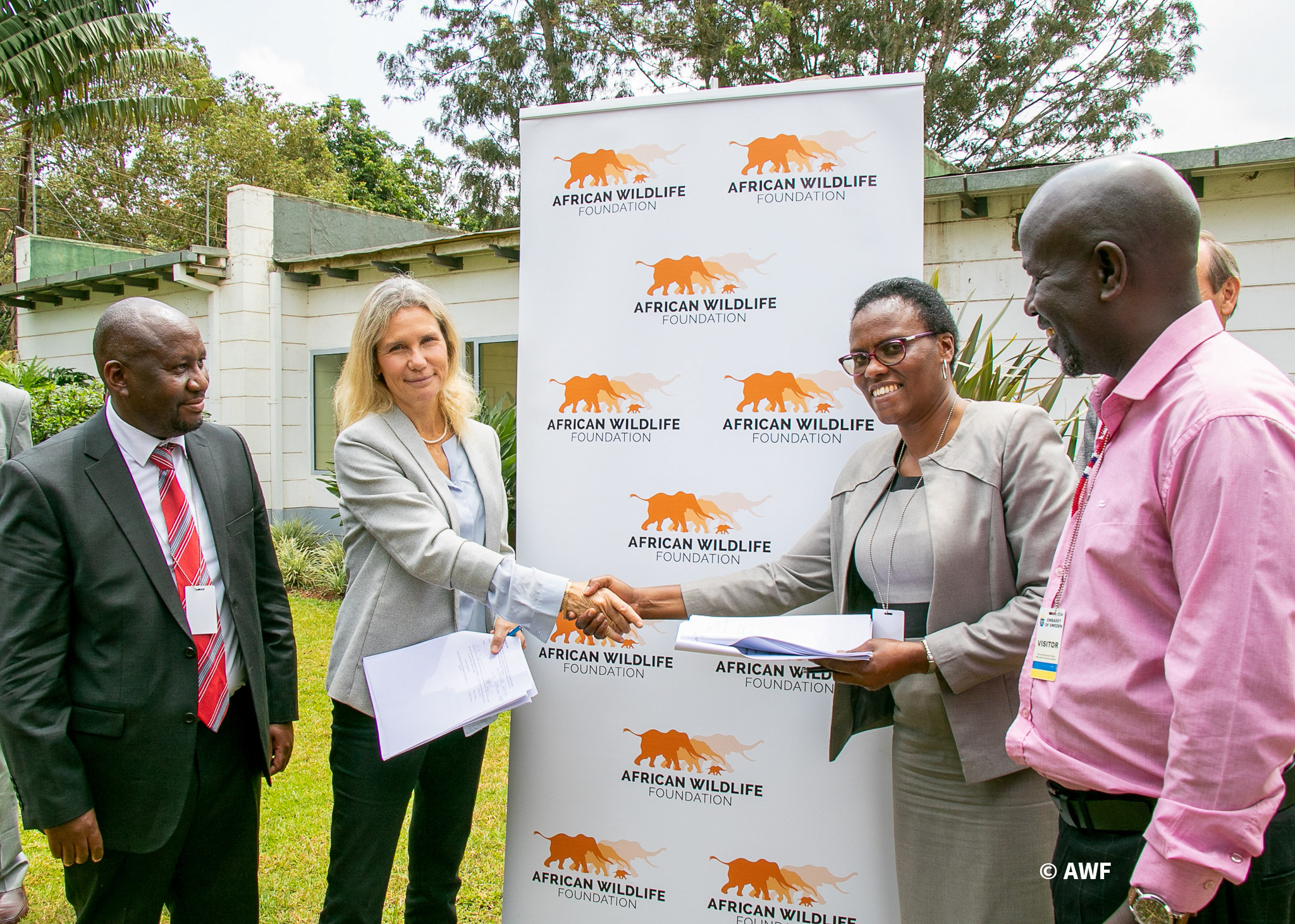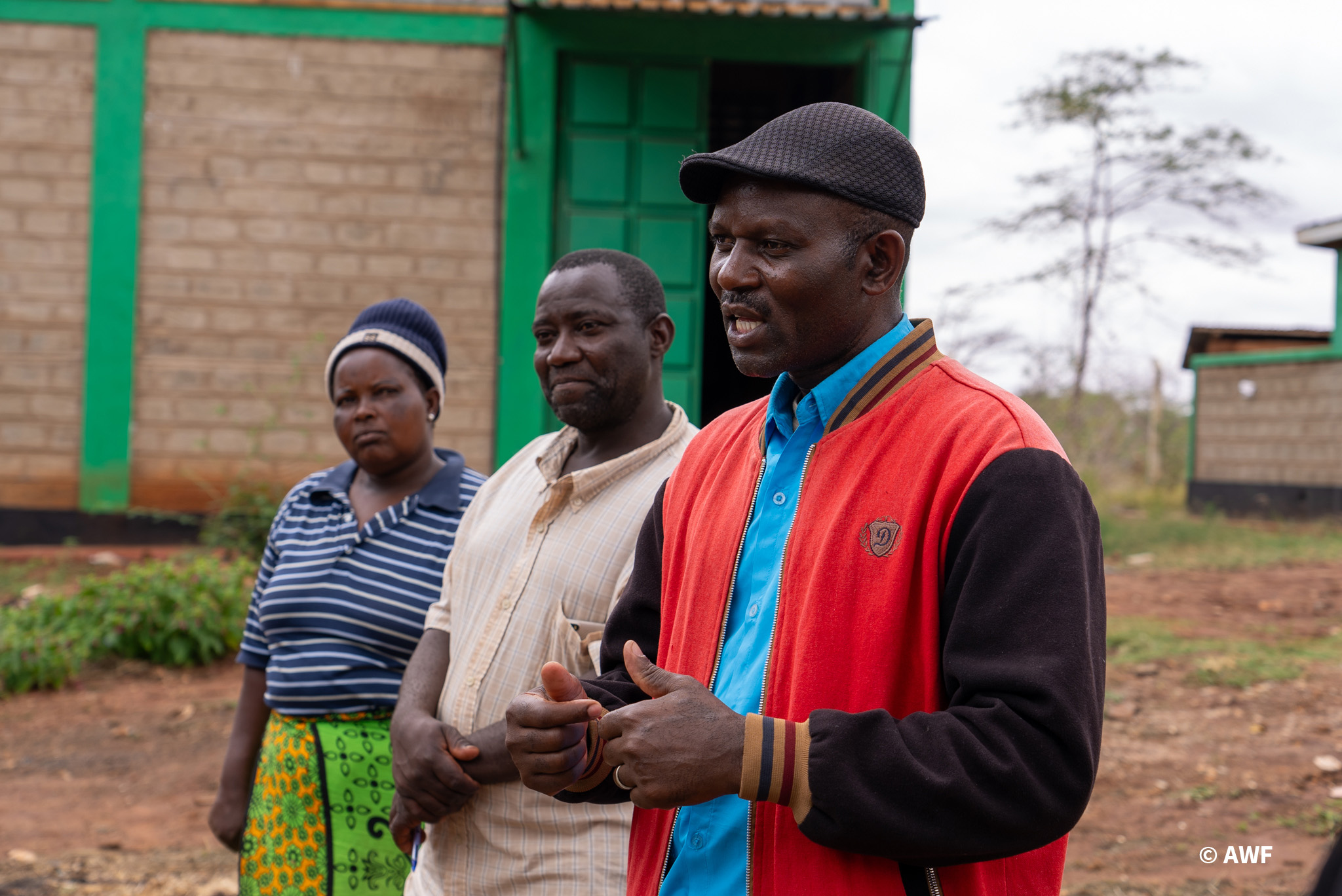2023 in Review: AWF’s Milestones and Anticipations in Kenya

As the sun sets on 2023, the African Wildlife Foundation (AWF) Kenya program reflects on a year of profound achievements and challenges. This year marked a significant stride forward in the organization's commitment to biodiversity conservation, advocacy, and community engagement with a keen focus on driving people-centric solutions. In an interview with Nancy Githaiga, who serves as the AWF Country Director, Kenya, we delve into the key milestones while looking ahead at the exciting prospects still to come in the next calendar year.
What were some of your goals coming into 2023 a time like this last year?
Last year was an election year so with a new transition comes new opportunities and challenges so building relationships across the different landscapes we work in was top of mind. With the vibrant team I work with in the Tsavo-Mkomazi landscape, I had great hope that the work we have been doing over the past few years would speak for itself. And it did. We had multiple sessions with leadership across multiple levels, ensuring that we continue walking the talk of having community-led programs that deliver both for the people and the wildlife in the region.
Reflecting on 2023, what achievements is AWF programmatic work in Kenya most proud of?
It is no secret that Kenya emerged as a trailblazer by hosting the inaugural Africa Climate Summit this year. A pivotal event attended by global leaders and most importantly African heads of government, institutions and private sector. AWF played a crucial role in the summit, emphasizing the urgency of collaborative efforts to combat climate change moving away from the siloed approach and bringing into focus the Global Biodiversity Framework that was adopted about a year ago. The summit undoubtedly set the stage for Kenya to assume a leadership role in climate resilience and we saw a growing interest from development partners to collaborate at scale.

A good example or example is the substantial Biodiversity and Climate Change Adaptation funding from the Swedish International Development Cooperation Agency (Sida) AWF secured to be implemented over 5 years within the Southern Kenya Landscape. This funding was pivotal in enhancing our conservation efforts, specifically in habitat restoration, wildlife protection, and community engagement in environmental stewardship. The projects under this funding will significantly contribute to conserving biodiversity hotspots and promote sustainable practices that align with AWF’s 10-year strategic vision.
Can you share specific examples of successful projects or initiatives undertaken by AWF Kenya in 2023?
Certainly. In 2023, AWF’s programs in Kenya delivered on each of the three goals of the organization. When it came to the first goal, building towards building a movement of African leaders that understand and embrace conservation as a necessity and not a choice, we provided intensive training in policy formulation and leadership management for three Kenyan fellows, through the Charles R Wall Youth Programs. We embrace the role of the youth in advancing our efforts and call upon even more to apply for the next cohort whose call for applications will be opening on January 3, 2024.

Additionally, our team was instrumental in revising the forest policy and bill in Taita Taveta, which has created a more favorable environment for community-led forest conservation. We have seen growing interest from the county government who invited AWF to speak at a panel discussion at the recently culminated COP28 on various areas of collaboration in the space that can address the adverse effects of climate change in this wildlife-rich region.
When it comes to our second goal to conserve and restore ecosystems and their services, working with the communities, AWF installed a borehole that now serves 6,000 people, enhancing their access to water for agricultural, health, and educational needs. We also distributed drip irrigation kits to 150 farmers, leading to a remarkable increase in agricultural productivity, exemplified by the successful cultivation and export of 1000 kgs of French beans.
One other highlight that ensured that wildlife is conserved in-situ was accomplished by establishing the Taita Taveta Wildlife Conservancies SACCO, providing financial empowerment to local conservancy efforts. Additionally, AWF also constructed eight housing units for wildlife conservancy scouts, improving their working conditions while drilling three new boreholes for wildlife consumption to mitigate human-wildlife conflict in the region.
What notable challenges did AWF face in implementing work in the Tsavo landscape, and how were they navigated?
Yes, like every success story, we did experience a few challenges but I am privileged to be working with a solution-oriented team that does not back down from any obstacles.
Most Kenyans this year can attest to the rise in fuel costs and our programmatic work was not exempt from this pain point. To mitigate this, we adjusted significantly by swapping physical meetings to virtual while consolidating field activities which reduced our travel expenses and minimized our carbon footprint.
Another notable challenge we experienced was with the delays and complexities in government processes. We initiated grassroots-level engagements to overcome this, fostering a bottom-up approach to conservation efforts. This accelerated project implementation and ensured community voices were heard in higher policy-making forums.
As the Kenya Country Director, what excites you most about the upcoming year? Are there any specific new partnerships or innovative projects in 2024?
The coming year, 2024, holds immense promise for AWF, marked by potential groundbreaking partnerships and innovative projects
A good example we are excited about is the Africa Clean Cooking and Conservation Collective championed by the Clean Cooking Alliance. This partnership aims to develop a comprehensive program focused on sustainable energy solutions, particularly in off-grid and rural areas, aligning with our environmental conservation and community empowerment goals. For us to achieve climate resilience, we must address how we use energy at all levels including in the household.

AWF in Kenya is set to launch projects to combat climate-induced water scarcity next year . These include expanding our water supply projects, like drilling more boreholes and desilting water pans. The goal is to alleviate human-wildlife conflicts and promote climate-resilient agricultural practices. Additionally, we plan to upscale our efforts using ecosystem-based adaptations to mitigate climate change impacts. This includes enhancing the uptake of forest value chains, mainly focusing on non-timber forest products, and strengthening the support for community forest associations. These initiatives are designed to bolster forest conservation while providing sustainable livelihoods to local communities.
As we bid farewell to a remarkable 2023, the organization and the country that hosts the AWF headquarters, eagerly anticipates the positive impact it will continue to make in the conservation landscape, fostering a harmonious coexistence between wildlife, communities, and the environment.